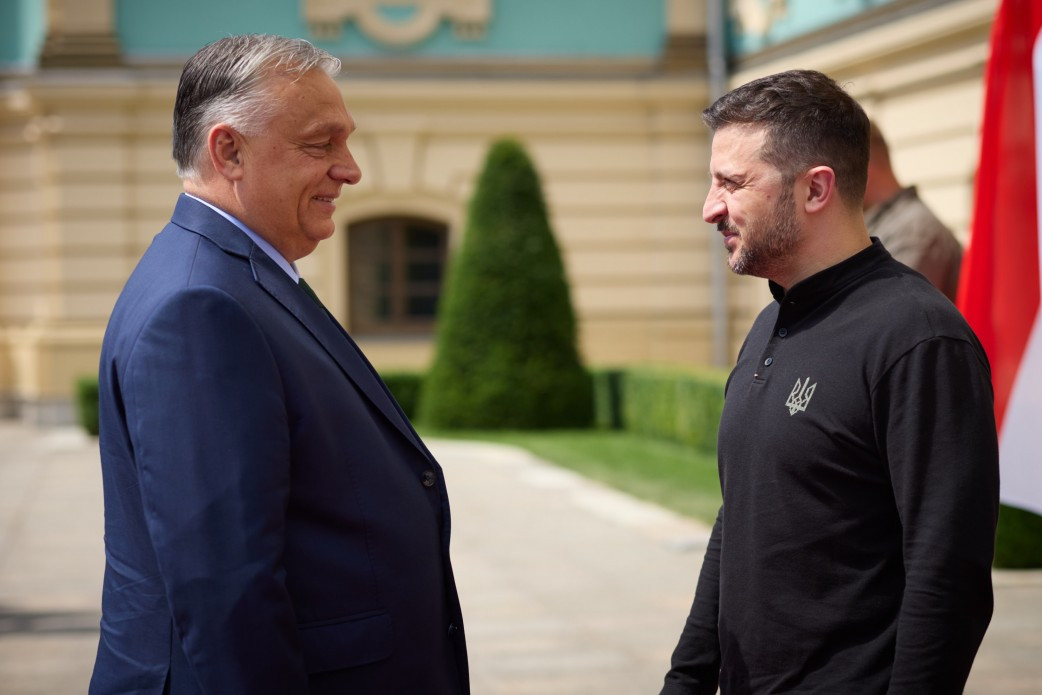Hungary's proposal comes as Hungary begins its rotating presidency of the European Council.

Hungarian Prime Minister Viktor Orban, who visited Kiev for the first time in 12 years, on July 2 asked Ukrainian President Volodymyr Zelensky to think about a ceasefire and start a peace process with Russia.
Commenting on the above proposal of the Hungarian Prime Minister, Russian President Vladimir Putin's spokesman, Dmitry Peskov, said on July 3 that the Kremlin does not expect any breakthrough from this call, because it is clear: this visit takes place in the context of Hungary starting its term as rotating President of the European Council from July 1.
“So in this case, I think, the responsibility for the interests of Brussels will prevail here, not for the national interests of Hungary. In this regard, Mr. Orban has a reputation as a politician who knows how to protect the interests of his country,” Mr. Peskov said.
Russia also believes that Prime Minister Orban is representing Brussels' interests in the negotiations between the Hungarian and Ukrainian leaders. However, Hungary stresses that its main goal is to achieve peace in Europe.
In theory, Hungary could act as a mediator between Russia and Ukraine, but the EU would be against this and European political circles would obviously do everything possible to block any peace initiative put forward by Budapest, Oleg Nemensky, a leading expert at the Russian Institute for Strategic Studies, told Izvestia.
"Hungary, as the country holding the rotating presidency of the Council of the EU, will be tied to the Russia-Ukraine issue, so, unfortunately, we should not expect any significant peace initiatives and related events initiated by Budapest. The problem is that Hungary does not have any particular influence in this process, on the possibility of peaceful negotiations on the conflict in Ukraine," Nemensky said.
“If such negotiations are initiated, it will be a decision for the EU and the US. However, from Brussels' point of view, Hungary will be a useful participant. Although, most likely, on the contrary, they will try to isolate Hungary from this process as much as possible because Budapest's position is considered pro-Russian,” Nemensky added.
For his part, Alexey Fenenko, Professor at the Department of World Politics at Moscow State University, commented: "When Russia wins, the idea of freezing the conflict will be supported by the West. They want the Russian army to stop fighting on the front line in exchange for Ukraine not joining NATO. This is a very unfavorable situation for Russia: its position as a key partner of the North Atlantic alliance will not prevent the West from continuing to supply weapons to Ukraine and prepare for the next war."
In addition, Mr. Fenenko emphasized that people should not think that the situation would change if former US President Donald Trump returned to the White House. "We did not see anything good when he was the US president. We saw the withdrawal from the Intermediate-Range Nuclear Forces Treaty, from the Open Skies Treaty, the bombing of Syria right in front of our forces and the pumping of weapons into Ukraine," the political scientist concluded.